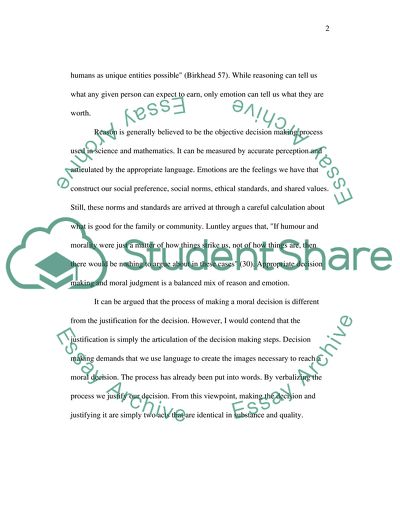Cite this document
(“Reason and Emotion: Sharpened Tools for Moral Justification Literature review”, n.d.)
Reason and Emotion: Sharpened Tools for Moral Justification Literature review. Retrieved from https://studentshare.org/social-science/1544401-tok-essay
Reason and Emotion: Sharpened Tools for Moral Justification Literature review. Retrieved from https://studentshare.org/social-science/1544401-tok-essay
(Reason and Emotion: Sharpened Tools for Moral Justification Literature Review)
Reason and Emotion: Sharpened Tools for Moral Justification Literature Review. https://studentshare.org/social-science/1544401-tok-essay.
Reason and Emotion: Sharpened Tools for Moral Justification Literature Review. https://studentshare.org/social-science/1544401-tok-essay.
“Reason and Emotion: Sharpened Tools for Moral Justification Literature Review”, n.d. https://studentshare.org/social-science/1544401-tok-essay.


